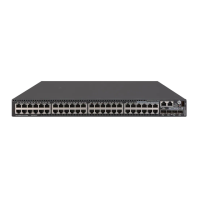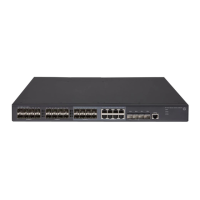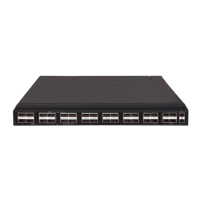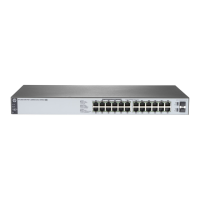416
Configuring an extended community list
You can configure multiple items for an extended community list that is identified by a number. The
relationship between the items is logical OR. A route that matches one item matches the extended
community list.
To configure an extended community list:
Step Command Remarks
1. Enter system view.
system-view
N/A
2. Configure an
extended community
list.
ip extcommunity-list
ext-comm-list-number
{
deny
|
permit
} {
rt
route-target }&<1-32>
By default, no extended
community list is
configured.
Configuring a routing policy
Configuration prerequisites
Configure filters and routing protocols, and determine the routing policy name, node numbers, match
criteria, and the attributes to be modified.
Creating a routing policy
For a routing policy that has more than one node, configure at least one permit-mode node. A route
that does not match any node cannot pass the routing policy. If all the nodes are in deny mode, no
routes can pass the routing policy.
To create a routing policy:
Step Command Remarks
1. Enter system view.
system-view
N/A
2. Create a routing policy and a node, and
enter routing policy node view.
route-policy
route-policy-name {
deny
|
permit
}
node
node-number
By default, no routing policy
is created.
Configuring if-match clauses
You can either specify no if-match clauses or multiple if-match clauses for a routing policy node. If
no if-match clauses are specified for a permit-mode node, all routes can pass the node. If no
if-match clauses are specified for a deny-mode node, no routes can pass the node.
The if-match clauses of a routing policy node have a logical AND relationship. A route must meet all
if-match clauses before it can be executed by the apply clauses of the node. If an if-match
command exceeds the maximum length, multiple identical if-match clauses are generated. These
clauses have a logical OR relationship. A route only needs to match one of them.
To configure if-match clauses:
Step Command Remarks
1. Enter system view.
system-view
N/A
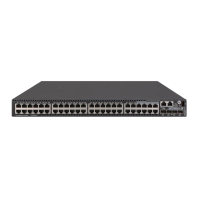
